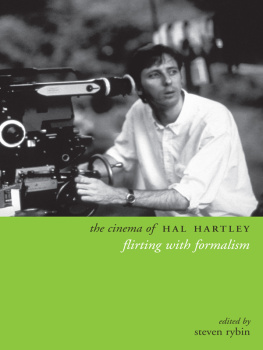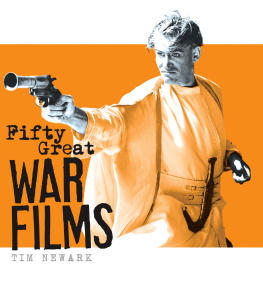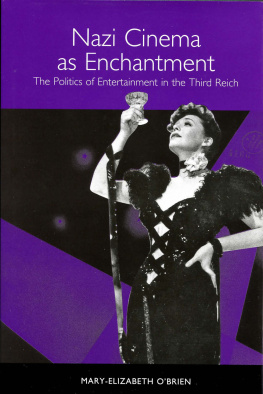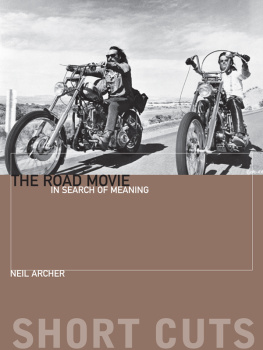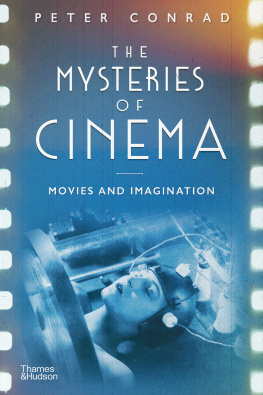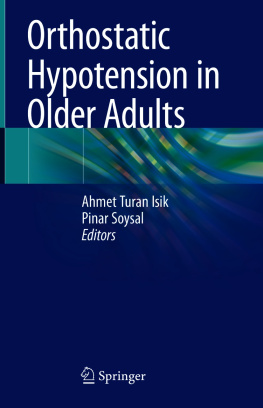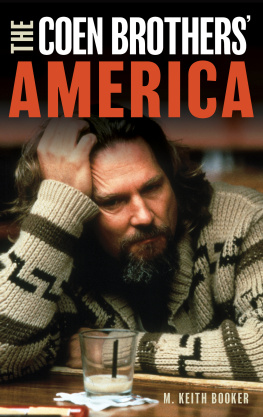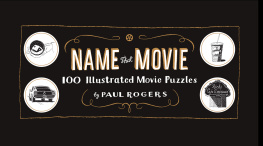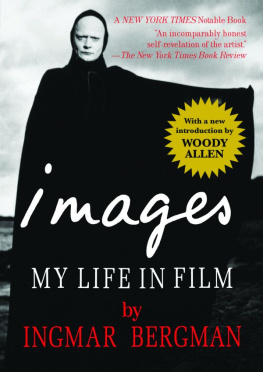

PublicAffairs
New York
Copyright 2014 by Kenneth Turan.
Published in the United States by PublicAffairs, a Member of the Perseus Books Group
All rights reserved.
Printed in the United States of America.
No part of this book may be reproduced in any manner whatsoever without written permission except in the case of brief quotations embodied in critical articles and reviews. For information, address PublicAffairs, 250 West 57th Street, 15th Floor, New York, NY 10107.
PublicAffairs books are available at special discounts for bulk purchases in the U.S. by corporations, institutions, and other organizations. For more information, please contact the Special Markets Department at the Perseus Books Group, 2300 Chestnut Street, Suite 200, Philadelphia, PA 19103, call (800) 810-4145, ext. 5000, or e-mail special.markets@perseusbooks.com.
Book Design by Jack Lenzo
Library of Congress Cataloging-in-Publication Data
Turan, Kenneth.
Not to be missed : 54 favorites from a lifetime of film / Kenneth Turan.
pages cm. Includes bibliographical references and index.
ISBN 978-1-58648-396-8 (hardback)ISBN 978-1-61039-376-6
(ebook) 1. Motion pictures. I. Title.
PN1994.T855 2014
791.4375dc23
2014007773
First Edition
10 9 8 7 6 5 4 3 2 1
To those who watch and dream, and to B, always
No form of art goes beyond ordinary consciousness as film does, straight to our emotions, deep into the twilight room of the soul.
Ingmar Bergman
Contents
, 19131914
, 1928
, 1932
, 1933
, 1937
, 1939
, 1940
, 1942
, 1941
, 1941
, 1942
, 1942
, 1945
, 1946
, 1948
, 1949
, 1950
, 1950
, 1950
, 1952
, 1952
, 1952
, 1953
, 1954
, 1955
, 1956
, 1957
, 1958
, 1962
, 1964
, 1967
, 1967
, 1969
, 1972
, 1974
, 1981
, 1983
, 1988
, 1992
, 1992
, 1992
, 2001
, 2003
, 2003
, 2010
, 2009
, 2010
, 2011
, 1965
Introduction
The writing of prefaces is, for the most part, work thrown away.
Anthony Trollope
Anthony Trollope hated wasting time. He wrote forty-seven novels, including the Palliser and Barsetshire series, plus assorted nonfiction and even a play or two. Trollope was so disciplined that if he finished one novel with a few minutes to spare in his writing schedule, he started another one. Really. So why was he taking valuable minutes writing a preface to The Vicar of Bullhampton, which he feared nobody would read.
Trollope wrote it, I feel sure, for the same reason Im writing this introduction: he felt the need to explain his intentions and motivations, to put what he had written into a context that would allow readers to more fully understand what he had done.
The book before you now may seem straightforward enough. Its a collection of essays on my fifty-four favorite films. But to me it raises all kinds of questions. Why this book? Why fifty-four films and what criteria were used to select them? And why, for that matter, become a film critic in the first place?
The answer to the last question, at least, should be obvious. I became a critic out of a deep passion for films and their ability to simultaneously do something I love: take me out of this world and return me to it not only entertained but, if I am fortunate, with my emotions and my understanding enlarged.
So when one of my editors at the Los Angeles Times accuses me of personalizing the films I write about, I plead guilty as charged. I look on the best of the movies Ive seenthe films discussed in this bookas friends whove enriched my life. As director Werner Herzog said, a memorable film sticks to you forever. It never leaves you. It becomes part of your existence.
Underlying all the questions this book raises, however, is the most basic one: How did I happen to become a critic in the first placea query that leads to my Brooklyn childhood.
The Brownsville area of Brooklyn where I grew up in the 1950s and early 1960s had more in common with the immigrant Jewish neighborhood of the 1920s and 1930s Alfred Kazin describes in A Walker in the City than with the epicenter of hipness the borough has become. I not only had no thought of being a film critic as a child, I had no idea the profession even existed. I was just a kid who enjoyed movies and saw them every chance I could, which was not as often as I would have liked.
Because my old-country father was uncompromisingly observant, the traditional Saturday matinees at my two local movie houses, the ornate pleasure dome that was the Loews Pitkin and the more proletarian Brandts Sutter, were open to me only if I was willing to risk his wrath, which I rarely did. That said, I do have a vivid memory of sneaking out to see a vibrant, cleft-chinned Kirk Douglas so bringing to life the title role of Ulysses in 1957 that I still have trouble visualizing the Homeric epic without him in it.
Since my theatrical attendance was limited, I was fortunate to come across Million Dollar Movie, a local television program with wonderful theme music that showcased older Hollywood features nightly on WOR-TV Channel 9. (Decades later, when I saw Gone with the Wind for the first time, I blurted out, Oh my god, they stole the theme music from Million Dollar Movie before I realized the reverse was true.)
With my sister grown up and out of the house and my parents too exhausted by work to be interested, I curled up by myself and experienced all manner of movies from King Kong to I Was a Fugitive from a Chain Gang. I did my watching alone, I formed my opinions alone, I talked to no one about what I had seen. I was in effect becoming a critic though I didnt know it.
Also a likely factor in my critical development, though it took me years to realize it, was the exposure I had as a child growing up in the Orthodox Jewish world to the tradition of Talmudic exegesis, the thorough examination of a biblical text. Taking the next step and analyzing a film, trying to figure out how and why it was doing what it was doing, was second nature to me, an exercise I engaged in well before I had any kind of official critical job.
Once I abandoned Brooklyn to go to college at Swarthmore, just down the road in Pennsylvania but a universe away in other respects, the pace of my movie viewing increased. Screenings of both Hollywood and foreign classics every Friday and Saturday night exposed me for the first time to films that could be as profound and moving as any novel. I further educated myself by poring over 16-millimeter rental catalogs and helping to select those all-college films.


